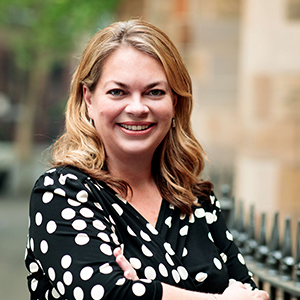First, I have a confession: When I pitched this session topic to IABC for this year’s World Conference, it was 2019. I rather bravely dubbed the presentation “How to Future-Proof Your Career.” I, like millions of others, had no idea what 2020 would bring. The COVID-19 pandemic is having a heartbreaking impact on all of us.
COVID-19 has seen years — and maybe even decades — of decision making take place in just days or weeks. We are seeing fiercely competitive pharmaceutical companies working together toward a vaccine and governments spending billions to support people, healthcare and industry. The Edelman Trust Barometer showed a big uptick in trust in government across the globe as citizens looked to their leaders to protect lives and livelihoods.
Unfortunately, beyond the health crisis, which is devastating on its own, lies the economic impact. Lockdowns and containment measures around the world have ground some industries to a halt and slowed down others. Globally, economies have shrunk, and we’ve seen millions lose their jobs, work fewer hours than usual or become subject to pay cuts. The communication community is feeling these effects, too.
It’s not all doom and gloom, though. In preparing for the World Conference presentation, I consulted a global group of experts — my personal brain trust, made up of communication leaders, talent leaders and executive recruiters — who agreed that the pandemic has increased demand for certain skill sets: internal communications, investor/financial relations, crisis and issues expertise, media relations and government/stakeholder relations.
They also agreed that no matter what your specialization is, there is a common set of foundational skills that will serve you now and into the future:
- Excellent oral and written communication skills
- Strong ability to mine data and research to uncover insights
- Creativity and innovation in strategy and delivery
- Channel skills with excellent execution
- Contextual awareness — understanding how messages will be interpreted, received and linked to other issues
Whether in calm or tumultuous times, any communicator — especially those who are unemployed or underemployed — can follow this five-point plan to achieve career growth and success.
- Work your network. We are all feeling the pain of this situation and want to help each other. Reach out to your network and let them know you’re seeking a new opportunity or looking to connect with other communicators. Be flexible on duties and price. As a former headhunter, I was always surprised how communication practitioners were shy about telling their own stories. Now is the time to work up your case studies and put them to use.
- Brush up on consulting skills. If you’ve never consulted, there is no time like the present to learn. Speak with agency friends or freelancers, look at sites like Upwork and com and do some googling, as there is plenty of free advice out there. The gig economy space will grow first, so get ready.
- Be your own thought leader. LinkedIn is a very simple way to start. Go on a connect-a-thon — you can start with me! Follow great leaders and engage with all the people you’ve worked with over the years. Join groups. Be generous. Share great stories or work with contextual information. Comment and congratulate others for their work. Write your own observational pieces. Be visible and engaged.
- Apply your skills in other areas. Be honest as to whether this is what you really want to be doing. If not, take some time to consider what really drives you. Recognize that the world has changed, so you can too. One of my brain trust experts said, “I feel strongly that comms people can do many things within business, such as operations, project management or leading as chief of staff — they just don’t realize it.”
- Learn, learn, learn. I know from my time as a headhunter, and echoed by everyone I consulted in preparing my 2020 Virtual World Conference presentation, that a commitment to continuous learning and putting those skills into practice places you at the front of the queue when professional opportunities arise. This has never been more important. Skill up and find projects at work, or volunteer opportunities, that use them. The good news is that there is a huge range of learning at your fingertips. IABC has a variety of resources, and top universities are offering short courses for low or no cost. My brain trust agreed that the in-demand skills for communicators in the future are business acumen, environmental social and governance (ESG), analytics and measurement, marketing and advertising, owned content and channel strategy.
There is no doubt that times are tough, but these steps will position you well as the recovery comes. Let’s hope it’s sooner than we think.
At the 2020 Virtual World Conference, Susan presented “Future-Proof Your Comms Career.” Review this session and others by purchasing one or more of the conference recording packages. View all available recording packages here.

Susan Redden MakatoaSusan Redden Makatoa is one of Australia’s leading corporate communication practitioners with over 20 years’ experience in leadership roles, building and coaching teams. Makatoa is group managing director for Edelman Australia and previously guided the corporate practices of Ogilvy PR and SenateSHJ. Before joining Edelman this year, she was director, search for communication specialist Temple Executive Search, filling senior roles for global and Australian companies, agencies, government and not-for-profits. She also coached communication leaders, helping them develop their own and their team’s capabilities. Dedicated to the growth and development of the communication profession, she researched and authored the Australian PR and communication industry’s first diversity and inclusion policy. A Fellow of the Public Relations Institute of Australia, she has also won four global IABC Gold Quills, five regional Golden Sabres and eight PRIA National Golden Targets. She has judged the PRIA Golden Targets, IABC Gold Quills and Mumbrella CommsCon awards and organized dozens of professional development and networking events for the Australian communication community.